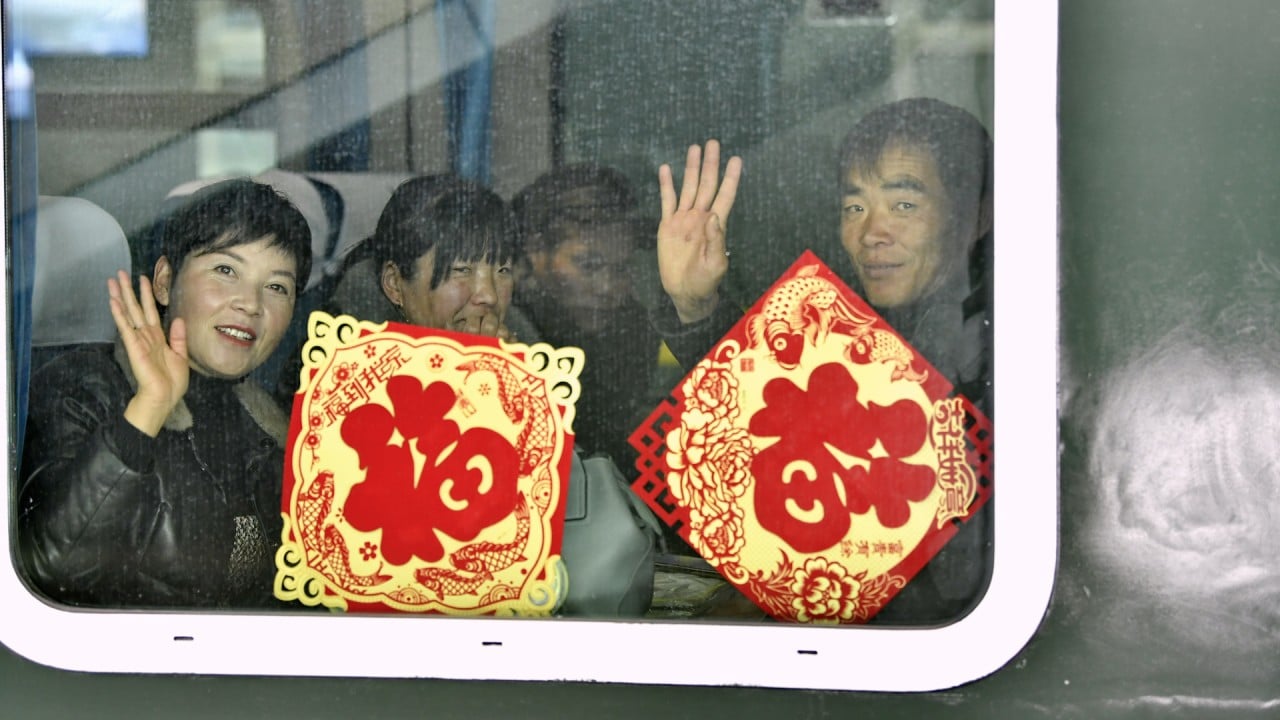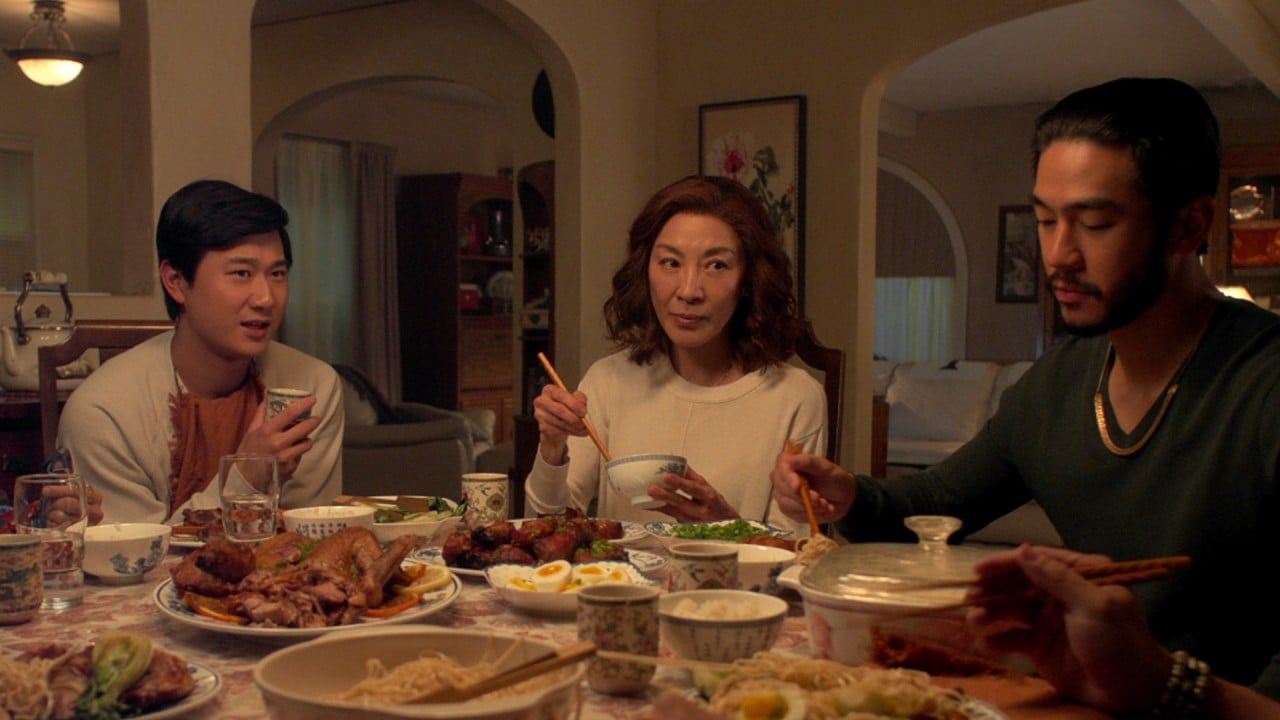
China’s big Lunar New Year films spark social media debate about body issues, self-esteem and justice system
- Total holiday box office reached US$695 million on Wednesday with YOLO leading ticket sales. Also showing are Article 20, Pegasus 2 and The Movie Emperor
- Actor, writer and director Jia Ling is drawing attention for dramatic 50kg weight loss as netizens discuss beauty standards in China
Two Chinese films released over the Lunar New Year holiday have set off a social media buzz, with state agencies even joining the discussion which addresses topics such as weight loss, self-love and legal justice.
Directed, written and starring Jia Ling, a representative of the new generation of female Chinese directors, YOLO (“you only live once” or Re La Gun Tang in Chinese) is about an overweight woman, Leying, who loses weight through boxing training while finding herself and learning to love herself through the sport.
While adapted from the Japanese film 100 Yen Love, the Chinese version is exceptional for Jia’s physical transformation – for the movie she lost more than 50kg (110lbs) in a year to portray the rebirth of her character.
Jia’s weight loss has been discussed more widely on social media than the film.
The director, who became a household name as a comedian, had drawn 1.6 billion yuan (US$220 million) at the box office four days after the film was released. The film is rated 8/10 on Douban, the country’s best-known film review site, with more than 140,000 reviews.
Dominating social media are positive comments cheering Jia’s weight loss, with some netizens even saying they were encouraged to head to the gym.
“The movie is encouraging, I was planning to start a group chat on WeChat with my friends to start working out and lose weight,” Eva, a middle school teacher in Shanghai, told the South China Morning Post after watching the film.
“Jia Ling’s new look after losing weight is not baiyoushou, but with strength and muscles. This is truly inspiring because she does not try to fit into a patriarchal aesthetic,” the female in her late 30s said. Baiyoushou is a Chinese social media word referring to “light skin, childlike young appearance, and slim figure” and describes the country’s alleged mainstream beauty standard for women as set by men.
Some reviewers wonder whether the film may trigger body anxiety and also say it downplays the difficulty of losing weight.
“I will not use Jia Ling as a role model to push my daughter to lose weight,” a 60-year-old in Beijing told the Post. “[Jia] has a professional team to help her to lose weight and she can earn so much money through this process – for our ordinary people, losing weight is a much more difficult, and sometimes even costly, process.”
But some top reviews on Douban said the film did not try to portray “losing weight”, but rather how a person could change their life through achieving a dream.
“The purpose of her film wasn’t at all to say that she lost weight … it was to show you that no matter how much you suck as a person, how much you fail … if you find one thing, even if it’s just a very small one, keep doing it, focusing on it, and putting your life on the line. You’re going to win, even if it’s just once,” said one review on Douban that had more than 20,000 likes.
Filmmaker, actress Jia Ling sheds 50kg for new movie, reignites body-image debate
Jia has become the country’s most successful female director in commercial performance terms.
Her first feature was Hi, Mum, a comedy about motherhood and the simple and unadorned affections of Chinese people in the 1980s. It was released during the Lunar New Year holiday period in 2021 and ultimately earned 5.41 billion yuan (US$752 million), making it the world’s No 1 film directed by a woman as measured at the box office until Barbie, directed by Greta Gerwig, was released last year.
Compared with Jia’s YOLO, Zhang’s film tackles a more controversial topic and features three semi-fictitious cases and Article 20 of China’s Criminal Law that touches on the right to self-defence.
In the film, three suspects who hurt or killed people had cause for self-defence or acted bravely for a just cause. These defendants eventually had their sentences reduced, exempted or commuted through reviews of self-defence provisions under China’s criminal law.
Zhang, who has been one of China’s top filmmakers since the country opened up, earned 700 million yuan at the box office (US$97 million) in four days of screening Article 20. It rates 7.8/10 on Douban and has more than 70,000 reviews.
The film received a rare review from China’s Supreme People’s Procuratorate under the title “The Law Is Not Cold Logic”, which asserts that the country’s prosecutorial system carefully weighs assault with self-defence arguments case by case.
“It’s not just a case … it’s someone else’s life, and we have to weigh someone else’s life in our own hands, and we have to use our criminal recourse very carefully,” said the review on the court’s WeChat account.
The movie has also sparked discussion about legal awareness and education in China.
Luo Xiang, one of China’s most well-known law professors in Beijing, said on his Bilibili channel that his reputation as a law educator stemmed from his writings about the Article 20 self-defence code.
“The public is so hungry for legal knowledge that every popular legal case is the best opportunity to popularise the law,” he said in his video published on Monday.
Last year, China said it would be increasingly selective in sharing court judgments on a public database that it set up a decade ago and that the country was also setting up two new archives for court rulings that would offer limited access or information to the public.
China’s latest box office hit is a satire on Big Tech work culture
The move, widely seen as a way to reduce the transparency of court rulings in China, raised strong public discussion and a backlash from some major academic elites in the field.
Lunar New Year is traditionally a key slot for mainland China’s box office, with this year marking the second such film occasion since the country lifted its Covid-19 restrictions.
The total box office reached 5 billion yuan (US$695 million) on Wednesday with YOLO leading ticket sales. Apart from YOLO and Article 20, Pegasus 2 directed by Chinese novelist Han Han, and The Movie Emperor, starring Hong Kong actor Andy Lau Tak-wah, are also competing in the holiday film market.
Last year, the week-long Lunar New Year slot earned 6.76 billion yuan at the box office.



